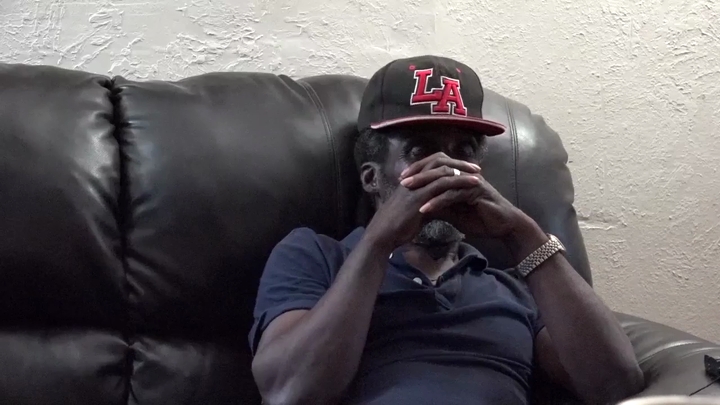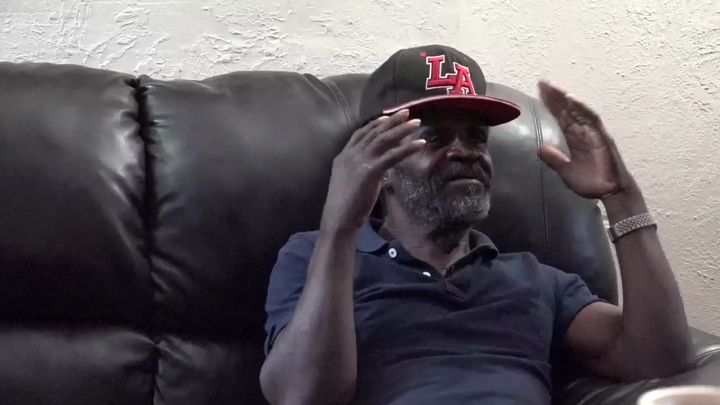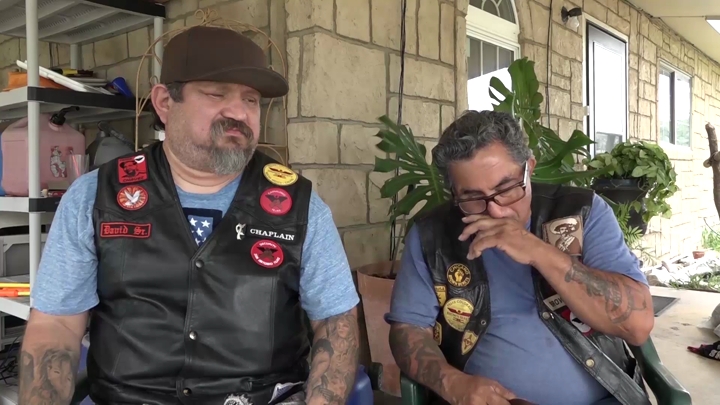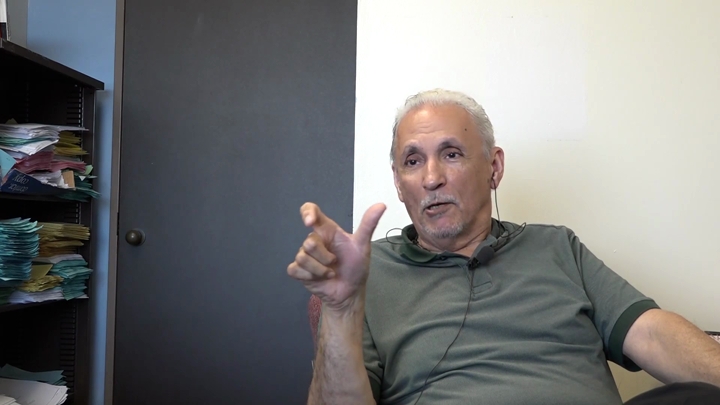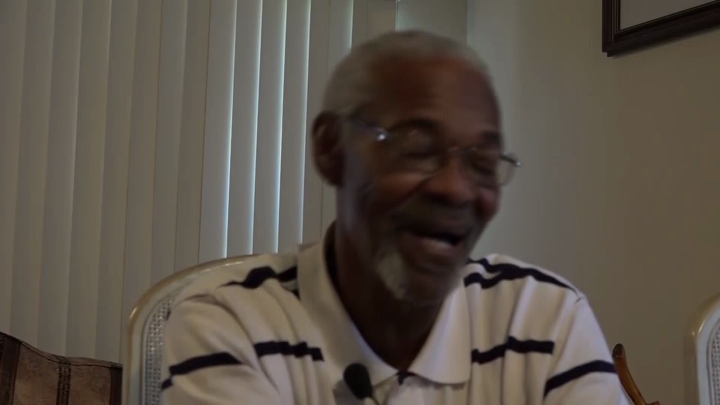Crear / The Black Panthers Under Attack and Life After
sign up or sign in to add/edit transcript
Crear: Like I said, if affected a lot of comrades in different ways. When the party was over, I was very bitter. I was pissed because that was my life. That’s what I dedicated it to. Interviewer: Why do you think that the party dissolved? Crear: Well a lot of it had to do—we under attack and then you had personality conflicts amongst the leadership, but the main thing was we were under serious attack. People became paranoid, a lot of people in leadership. It was—like I said, they were trying to destroy us, and they were very successful in the end. We held out for quite a while. This was our life and they were intent destroying the party. Then, another thing, party made like the last stand was going to be in Oakland, the base of operations. So, a lot of chapters would close, and comrades were brought to Oakland. Matter of fact, Houston, Seattle, Chicago, North Carolina, I think that was the last chapters that were functioning toward the end because all the rest of them had been closed down and everything had been pulled to Oakland because we were going to make a stand at Oakland. That was our base of operation. Not only make a stand, but we were going to set an example, just like when Bobby Seal ran for mayor and Elaine Brown ran for city council. We shook up the whole establishment up there because the mayor at that time he had been in office, he had never been in a run-off. He had been in office for years and we forced him into a run-off. Really, we shocked ourselves, but we were so organized. It was a sight to see. We had campaign offices all over and we hit the streets. Every morning Bobby Seal—I was up there. I was in photography. I’d be with Bobby Seale and every morning we’d hit the boss. He’d get on the bus. They’d both get on the bus, “Hey, I’m Bobby Seale. I’m Elaine Brown. We running for—” and they get off the bus, wait on the next bus, get on that bus. We had it going on. Forced them into a run-off. So, in Oakland, we had a lot of sway and power there. We were having a concert. It was going to be at the Oakland Coliseum. It was a fundraiser. Like most things that we had, where we had where everybody like the ticket-takers, ushers, they was all going to be party members. So, then the city told us nah we can’t do that because they had to be union to work there at the Coliseum. So, Bobby Seale, he called the mayor up and said “Well, how much it cost to join the union.” (inaudible) “I tell you what, we going to flood the union with Panther members.” “Well, never mind, y’all can go ahead—” but we had that kind of clout there. So, it was some interesting times. It was some hard times. I have a lot of fond memories. Especially with my comrades. I can right now call people whether they in Virginia, Philadelphia, New York that I worked with forty years ago and we still have fond memories. We talk like—some people I might not have seen in years but we still—they recognize my voice and I recognize their voice because we lived together, we fought together. We had that comrade—(inaudible) we had the alumni association (inaudible) we the strongest fraternity ever exist. Most comrades still have that fighting spirit, that same—you know, they doing—like I said, comrades hit them hard. I mentioned Bobby Rush, but you have comrades that are lawyers, doctors, that went on with their lives and became, you know. You had one brother in North Carolina that started a school that’s very popular in Winston-Salem. You have one comrade in Philadelphia, he’s got a big foundation that he started in the community. I mean a big foundation. They just opene3d up a new building, something like a couple million dollar building in the black community to serve. Comrades still have that same—we all older and my main thing and most of us are just to support different young folks like Black Lives Matter. Support young folks. It’s they turn because we always said the revolution is the youth. Interviewer: So, you maintain relations with Black Lives Matter? Crear: Oh yeah. I’ve got a meeting with a group of them Thursday night in fact. They want to bring about twenty—because the fiftieth anniversary founding of the party, we’re having a big celebration in Oakland October 20 to the 23. They want to bring about twenty to thirty people, so I been meeting with them. This’ll be the second meeting. We support people like SHAPE, and (inaudible) Community Center and Derek Muhammed. I’m close with him. Anybody that’s active and trying to do something. We’ll be there for you. The thing about it, a lot of the youth that I meet, and they’ll tell me, it’s an honor to meet you and thank you for your struggle and all you did, but like I tell them, it’s an honor to meet them because it makes me feel like the things we did wasn’t in vain. That you’re carrying that struggle on and I really appreciate that.
| Interview | Interview with John Crear |
| Subjects | Work › Labor Unions |
| Electoral Politics | |
| Electoral Politics › Election Campaign Strategies | |
| Black Power › Black Panthers | |
| Black Power › Local Black Power Organizations | |
| Police and Law Enforcement › Federal Law Enforcement | |
| Tags | Black Lives Matter |
| sign up or sign in to add/edit tags | |
| Interview date | 2016-06-06 |
| Interview source | CRBB Summer 2016 |
| Interviewees | Crear, John |
| Interviewers | Enriquez, Sandra |
| Rodriguez, Samantha | |
| Locations | Oakland, CA |
| Duration | 00:06:43 |
| Citation | "The Black Panthers Under Attack and Life After ," from John Crear oral history interview with Sandra Enriquez and Samantha Rodriguez, June 06, 2016, Civil Rights in Black and Brown Interview Database, https://crbb.tcu.edu/clips/3521/the-black-panthers-under-attack-and-life-after, accessed February 24, 2026 |


